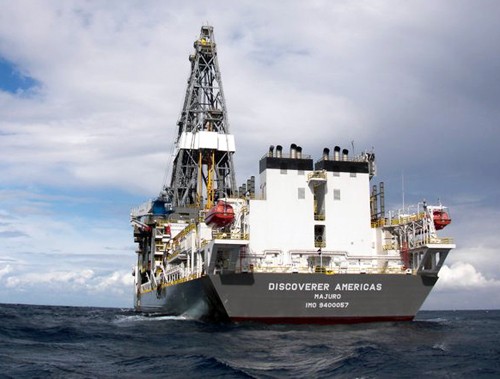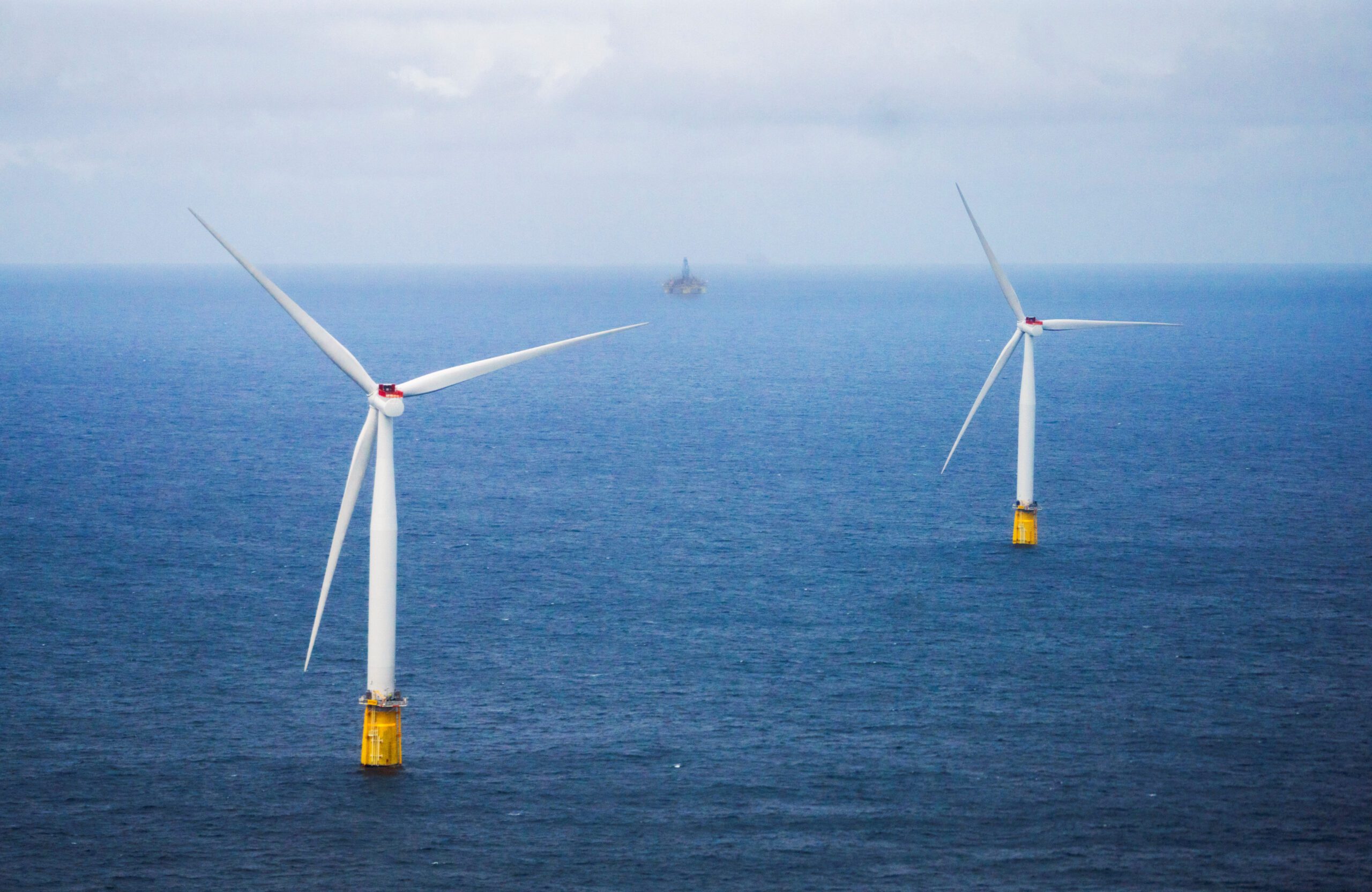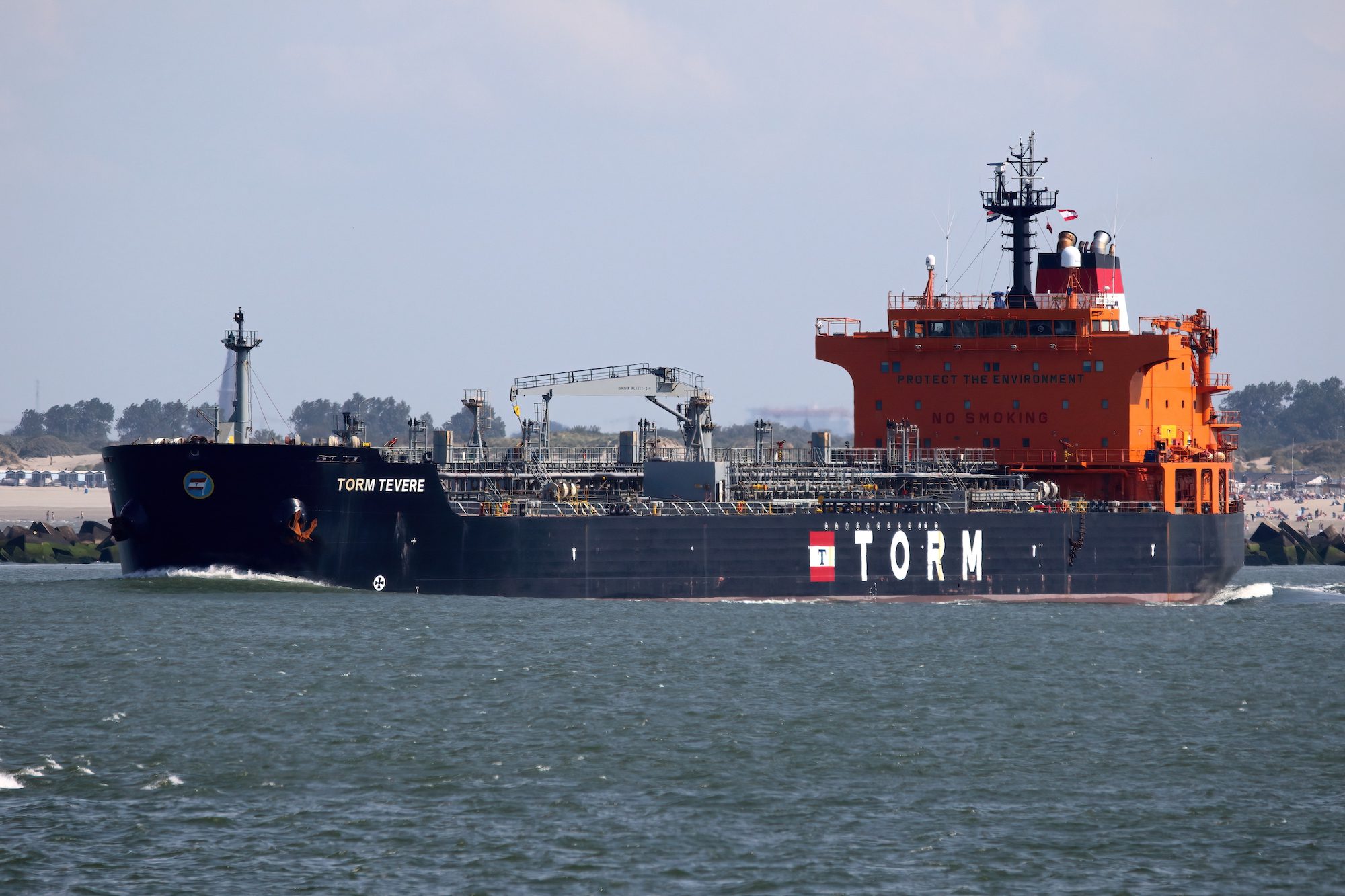Discoverer Americas, a 6th Generation Drillship owned by Transocean, image (c) Gary Hendershot
 By Terry Wade and Anna Driver
By Terry Wade and Anna Driver
HOUSTON, Feb 20 (Reuters) – Barely two months into his new job as the head of the world’s largest offshore driller, Steven Newman was steering Transocean through the 2010 Gulf of Mexico oil spill, quickly earning a reputation as a CEO with a steady hand.
Too steady, perhaps.
Since Sunday Newman, 50, is out of work. People inside and outside the company say his abrupt departure reflected in part the board’s view that the 20-year company veteran was too conservative and lacked a bold vision for a period of dramatic industry change that began at the end of the last decade.
Newman also had to contend with two members of the 12-member board who represent activist investor Carl Icahn, who demanded a big dividend increase in 2013 and then saw it slashed by 80 percent this month in response to a sharp market downturn.
Icahn did not return phone calls and Newman could not be reached. A Transocean official declined to comment.
It is not clear what investors such as Icahn might have in mind for the company.
For now, according to one banker and other sources, Transocean does not appear to be a takeover target because it is too large to be swallowed by nearly any one of its competitors. According to a Transocean presentation, its fleet is about 25 percent larger than its biggest rivals, Ensco Plc and Seadrill Ltd, which are also grappling with the downturn.
Newcomers, the sources said, would also have trouble gaining entry into the highly technical and risky world of offshore drilling.
Transocean shares have fallen almost 80 percent since Newman took over in March, 2010. By comparison, the PHLX Oil Services Index rose 1.5 percent in the same period.
Some of the stock battering can be traced back to the fallout from the worst offshore oil spill in U.S. history caused by the deadly explosion and sinking of its Deepwater Horizon rig leased for BP Plc’s Macondo well.
Newman’s departure and the dividend cut could also be seen as casualties of a 50-percent slump in crude prices since mid-2014.
However, Transocean current and former employees and analysts also point to poor timing of some strategic moves and a slow response to the onshore shale oil revolution that began six years ago and overlapped with much of Newman’s five-year term.
Reeling from litigation over the BP well blowout, Transocean was slow to build new rigs, failing to capture new business during an upswing in prices and now left paying for unfinished rigs when crude prices and lease rates are sharply down.
During that time, the company, which built its reputation on performing Herculean jobs, such as record-setting drilling in 12,000 feet of water to depths of 40,000 feet, began losing its edge to smaller, nimbler rivals.
Under Newman, the Swiss-domiciled company took a long time to deal with a vast oversupply of offshore rigs as a result of a rapid rise in cheaper and more accessible U.S. shale oil drilling.
Only in May 2014, just a month before oil prices began their slide, Transocean said in a filing it planned to create a new entity to later spin off eight of its units in the UK North Sea. That plan was shelved in November.
In January, the company said it had scrapped or would scrap 12 older drilling units from the fleet of 71 units it owns or operates. Analysts expect additional costly scrappings.
It remains an open question within the company whether the board will pick Newman’s successor from within our look for a “transformational” leader from outside, one source said.
“You do need somebody that can adapt to that new environment,” said Rob Desai, oilfield service analyst at Edward Jones in St. Louis.
There is no easy fix. Transocean’s fleet is already half the size it was in 2010. And even more nimble rivals such as Atwood Oceanics Inc, which has a fleet of around 14 units, have seen lease rates come under pressure.
In the short-term analysts say Transocean may need to tap loans or issue shares as it faces nearly $2 billion in debt maturing in the next 18 months, while investing to renew its fleet.
“I think they are recapitalization candidate. So they are going to be playing defense here for a while,” said Bill Herbert, managing director at Houston-based energy focused investment bank Simmons & Company, which rates the stock underweight.
At least one big investor is betting on a rebound in Transocean shares. Soros Fund Management LLC, the hedge fund of George Soros, bought a small stake of 149,000 shares of Transocean in the fourth quarter, according to a securities filing.. (Additional reporting by Jennifer Ablan and Mike Stone in New York; Editing by Tomasz Janowski)
(c) 2015 Thomson Reuters, All Rights Reserved

 Join The Club
Join The Club











